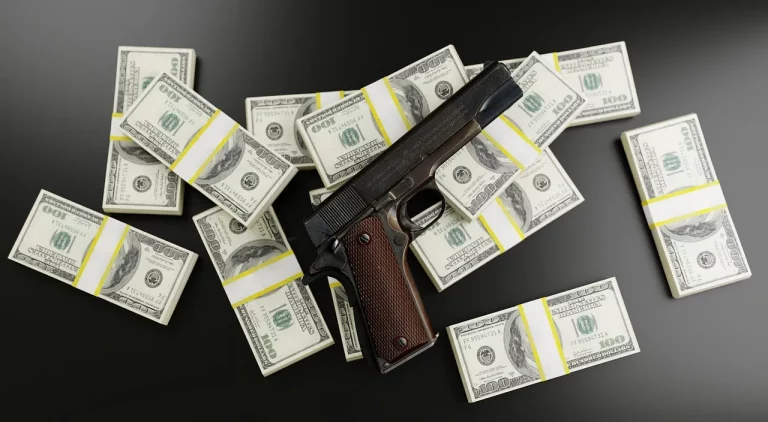How Much Money Do New York Times Best Selling Authors Make?
Have you ever wondered how much money the authors behind the New York Times bestsellers make? Being an author seems like such a glamorous career, getting paid to do what you love – writing. But is it really all it seems? Can writing a bestseller set you up for life financially?
If you’re short on time, here’s a quick answer to your question: Most New York Times bestselling authors make between $10,000 to $15,000 per book. However, a few top-tier authors can make over $1 million per book. Advances for first-time authors average $5,000 to $15,000.
In this comprehensive guide, we’ll look at the ins and outs of bestseller advances and royalties, the income differences between traditional and self-published bestselling authors, what genres pay the most, and how many copies you need to sell to make the bestseller lists and big money. We’ll also profile a few top bestselling authors and take a look at just how lucrative writing bestsellers can be.
Average Advances and Royalties for Bestselling Books
Average Advances for First-Time vs Established Authors
When it comes to advances for bestselling books, there is a significant difference between first-time authors and established authors. First-time authors typically receive advances ranging from $5,000 to $15,000, while established authors can expect advances anywhere from $50,000 to several million dollars.
It’s important to note that these figures are just averages, and there are many factors that can influence the size of an advance. Factors such as the author’s previous sales record, the genre of the book, and the current market trends all play a role in determining the advance amount.
Royalty Rates for Print Books
Once a book is published and starts selling, authors receive royalties based on a percentage of each book sale. For print books, the royalty rates generally range from 8% to 15% of the book’s list price.
It’s worth mentioning that these rates can vary depending on the publishing contract and the author’s negotiation skills. Some authors may be able to negotiate higher royalty rates, especially if they have a strong track record of sales.
For example, best-selling author Stephen King is known to have negotiated a royalty rate of 15% for his books, which is on the higher end of the spectrum.
Royalty Rates for Ebooks
With the rise of digital publishing, ebooks have become a popular format for readers. Royalty rates for ebooks are typically higher than those for print books, ranging from 25% to 50% of the book’s list price.
This higher royalty rate is due to the lower production and distribution costs associated with ebooks. Since there are no physical copies to print and ship, authors can earn a higher percentage of the book’s price.
It’s important to note that ebook royalty rates can also vary depending on the publishing contract and the platform on which the book is sold. Some self-published authors may even earn up to 70% of the book’s price when selling through platforms like Amazon Kindle Direct Publishing.
For more information on advances and royalties for bestselling authors, you can visit Authors Guild or Publishers Weekly.
Income Differences: Traditional vs Self-Published
Higher Royalty Rates for Self-Published Authors
When it comes to income differences between traditional and self-published authors, one of the main factors to consider is the royalty rates. Self-published authors have the advantage of earning higher royalty rates compared to their traditionally published counterparts.
While traditional publishers typically offer royalty rates ranging from 10% to 25% of the book’s sales, self-published authors can earn as much as 70% of the book’s sales. This means that for every copy sold, self-published authors get to keep a larger portion of the profits.
Self-publishing platforms like Amazon Kindle Direct Publishing (KDP) and Smashwords have made it easier for authors to bypass traditional publishing routes and take control of their own publishing process.
By cutting out the middleman, self-published authors can set their own prices and retain a larger share of the revenue.
According to a report by Author Earnings, self-published authors collectively earned more in 2017 than traditionally published authors. This data suggests that self-publishing can be a lucrative option for authors willing to put in the effort to market and promote their books.
Larger Pieces of the Pie for Traditional Authors
While self-published authors may have higher royalty rates, traditional authors often have access to larger advances and a wider distribution network. Traditional publishers are more likely to invest in marketing and promotion for their authors, which can lead to higher book sales and greater exposure.
In addition, traditional authors benefit from having their books stocked in physical bookstores, which still hold significant sway in the publishing industry. This exposure can lead to increased sales and potential opportunities for book signings and speaking engagements.
Furthermore, traditional publishers often have established relationships with literary agents and industry professionals, which can open doors to book deals and other publishing opportunities. These partnerships can provide authors with additional income streams, such as movie or television adaptations, foreign rights sales, and licensing deals.
It’s important to note that the income potential for both traditional and self-published authors can vary greatly. While some self-published authors have achieved remarkable success and made millions of dollars, the majority of authors, regardless of their publishing route, earn modest incomes.
Hard work, dedication, and a bit of luck all play a role in determining an author’s financial success.
Which Genres Make the Most Money?
Fiction vs Nonfiction
When it comes to book sales, both fiction and nonfiction genres have the potential to be highly profitable. However, there are some key differences between the two. Fiction books, such as romance, mystery, and fantasy, tend to have a larger market and can attract a wide range of readers.
Nonfiction books, on the other hand, are often focused on specific topics or areas of expertise, which can attract a dedicated audience.
According to a study conducted by Publishers Weekly, fiction books generally outsell nonfiction books. This may be due to the fact that fiction books have a broader appeal and can capture the imagination of readers.
However, nonfiction books can still be highly lucrative, especially if they tap into a popular or trending topic.
The Most Lucrative Genres
While all genres have the potential to make money, some genres are known to be more lucrative than others. The top earning genres for authors can vary depending on factors such as current trends, reader demand, and marketing strategies.
However, some genres have consistently proven to be highly profitable.
- Mystery/Thriller: Mystery and thriller books consistently rank among the top earners in the publishing industry. These genres have a dedicated fan base that eagerly awaits new releases from their favorite authors.
- Romance: Romance novels have a massive and dedicated following, making them a highly profitable genre. With subgenres like contemporary romance, historical romance, and paranormal romance, there is a romance book for every reader’s taste.
- Fantasy/Science Fiction: The fantasy and science fiction genres have gained immense popularity in recent years, thanks to successful book series like “Harry Potter” and “Game of Thrones.” Authors in these genres often have dedicated fan bases eager to devour their latest works.
It’s important to note that success in any genre depends not only on the quality of writing but also on factors such as marketing, timing, and luck. While these genres have a proven track record of success, aspiring authors should always write in a genre that they are passionate about and feel confident in their ability to create compelling stories.
How Many Copies Do You Need to Sell to Make the Bestseller Lists?
Securing a spot on the bestseller lists is a dream for many authors, and understandably so. Not only does it bring recognition and prestige, but it can also significantly impact an author’s earnings. However, the exact number of copies needed to make the different bestseller lists can vary.
Let’s take a closer look at the requirements for the New York Times Best Sellers List, as well as the USA Today and Wall Street Journal lists.
New York Times Best Sellers List
The New York Times Best Sellers List is one of the most prestigious and influential lists in the publishing industry. To make it onto this list, an author needs to sell a substantial number of books within a specific timeframe.
The exact number can vary, but it is estimated that selling around 5,000 to 10,000 copies in a week can often secure a spot on the list.
It’s important to note that the New York Times Best Sellers List is divided into different categories, such as fiction, non-fiction, and children’s books. Each category has its own list, and the number of copies needed to make the list can vary depending on the level of competition in that specific category.
USA Today and Wall Street Journal Lists
In addition to the New York Times Best Sellers List, there are other notable lists that authors strive to be a part of, such as the USA Today and Wall Street Journal lists. While these lists may not carry the same level of prestige as the New York Times list, they still provide valuable exposure and recognition.
The USA Today list is based on sales data from a variety of sources, including bookstores, online retailers, and wholesalers. The exact number of copies needed to make the list can vary, but selling around 3,000 to 5,000 copies in a week is often a good benchmark to aim for.
The Wall Street Journal list, on the other hand, focuses specifically on sales from bookstores. To make this list, an author typically needs to sell around 2,000 to 3,000 copies in a week.
It’s worth mentioning that these numbers are not set in stone and can vary depending on various factors, such as the time of year, competition in the market, and the overall demand for books. Additionally, these numbers are just estimates and are based on industry insights and observations.
For more information on the bestseller lists and the specific requirements for each one, it’s always a good idea to visit the official websites of these publications. The New York Times, USA Today, and the Wall Street Journal all provide detailed information on their respective bestseller lists and how authors can strive to make it onto them.
Case Studies: Top Bestselling Authors’ Advances and Income
J.K. Rowling
J.K. Rowling, the author of the immensely popular Harry Potter series, is widely known for her incredible success. According to reports, Rowling received an advance of $105,000 for the first book in the series, “Harry Potter and the Philosopher’s Stone.”
However, as the series gained popularity, her advances increased significantly. By the time she wrote the final installment, “Harry Potter and the Deathly Hallows,” Rowling reportedly received a staggering advance of $4 million.
Rowling’s income from book sales is equally impressive. As of 2021, the Harry Potter series has sold over 500 million copies worldwide, making it one of the best-selling book series in history. With each book selling millions of copies, Rowling’s royalty earnings are estimated to be in the hundreds of millions of dollars.
James Patterson
James Patterson, a prolific author known for his suspenseful thriller novels, has consistently topped the bestseller lists. Patterson’s advances and income are a testament to his success in the publishing industry.
He is known for securing multi-million dollar book deals and commanding high advances for his novels.
One notable example is Patterson’s book “The President is Missing,” co-written with former U.S. President Bill Clinton. The book reportedly earned Patterson a $10 million advance. This demonstrates the significant financial rewards that can come from collaborations and writing high-profile books.
Danielle Steel
Danielle Steel, a bestselling romance novelist, has written numerous books that have captivated readers worldwide. Steel’s advances and income reflect her enduring popularity and the loyalty of her fanbase.
While specific details about her advances are not readily available, it is known that her novels consistently debut on the New York Times bestseller list.
Steel’s success can also be seen in her impressive book sales. With over 800 million copies sold worldwide, Steel is one of the most successful authors of all time. Her books continue to resonate with readers and generate significant income through royalties and licensing deals.
Stephen King
Stephen King, a master of horror and suspense, has had a long and successful career as an author. Known for his gripping storytelling and memorable characters, King’s advances and income have been substantial throughout the years.
One of King’s most famous novels, “The Shining,” reportedly earned him a $400,000 advance. His book “It” also achieved immense success, leading to a $450,000 advance. These advances are a testament to King’s ability to captivate readers and generate significant interest in his work.
Additionally, King’s books have been adapted into successful films and TV shows, further contributing to his income. With a dedicated fanbase and a wide range of works, King’s earnings from book sales and adaptations have undoubtedly made him one of the most financially successful authors of his generation.
Conclusion
As we’ve seen, writing a New York Times bestseller can certainly be lucrative, with top authors earning eight and even nine figure advances and incomes. However, more average bestselling authors make solidly middle class incomes between $10,000 to $100,000 per book – nothing to scoff at, but not enough to jet off to your private island either.
The odds of hitting a home run and earning over $1 million per book are slim, but writing bestsellers can supplement your income very nicely. Just keep in mind that writing an actual good book comes before making money. As Stephen King put it, “If you wrote something for which people sent you a check, if you cashed the check and it didn’t bounce, and if you then paid the light bill with the money, I consider you talented.”








